Zeitgeist: condemns all religion/not Abrahamic distinctly or Judaism especially… …as a motive of imposed liberalism’s organization.
This Post Has One Comment
Comments are closed.





























































































































































A Zeitgeist may be described in sober terms as the largely taken for granted (unconscious, hence “ghostly”) logics of meaning and action comprising a moral order – the characteristic obligations, legitimacies and prohibitions constituting social paradigmatic parameters. I don’t need to refer to the oft quoted statement by Voltaire to suggest that given our prevailing zeitgeist, even where the progenitors of a theory via academia or media are not themselves Jewish, that they have dared not lay blame in the hands of the Jews. To cite Jews, their religion and practices as explanatory of social problems has been strictly prohibited since World War II; media and academia having circled the wagons more fervently and thoroughgoingly than ever against heretics of the paradigm – the zeitgeist of Jews as sacred cow. Nevertheless, it has only been more strong a taboo since the western world viewed footage of Operation Reinhard’s wake, and the Nazi mirroring of themselves as chosen, but it is not a new taboo. The Bible, Old and New Testament, has in fact been “the Jewish media” for 2,000 years, designating Jews as chosen (if not misguided), as having donated Christ, the savior of Gentiles, savior of all non-Jews, Whites included; and texts be known, has made taboo self interested defense and action for Gentiles, interposing and prescribing upon them instead an obsequious Golden Rule that the Jews themselves would not adhere to.
It is an observable Jewish strategy within this zeitgeist for their adherents to be granted “rights of display” as they might disseminate, via academia and media, a good deal of penetrating, truthful information; but in the end those rights of display are curtailed and attention deflected from just those parts of information where Jewish ways and means are shown responsible for negative social and genetic consequences for other peoples.
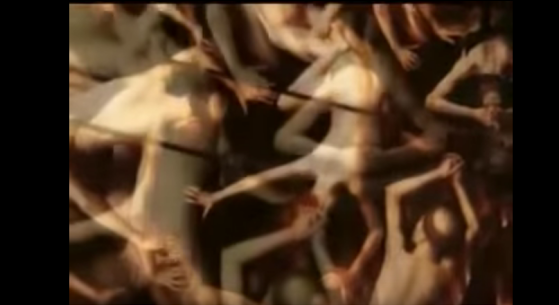
…”but he loves you!”
Such is the case with Zeitgeist – the 2007 film Zeitgeist; viz., its segment on religion. After setting out an array of fascinating information tracing sources of Judeo-Christian mythology to pagan roots – largely to Egyptian sun worship – there is, by segment’s end, blame laid on the use of Christianity, by Roman leaders in particular, followed by a logical fallacy stealthily deployed: i.e., that all religions are mythologies used to cover-up the truth by those who know the truth and seek nefarious social rule by the obfuscating properties of religious mythos – all religions serve this purpose, therefore the Abrahamic religions generally and Judaism in particular should not be singled-out for special critique.
In fact, Christianity was not as much the means by which Roman leaders beginning with Constantine took power over the rest of Europe, so much as it was the means by which the Jews overthrew ancient Rome and ultimately, all of Western civilization – placing it all vaguely under the auspices of Noahide law – our Zeitgeist.


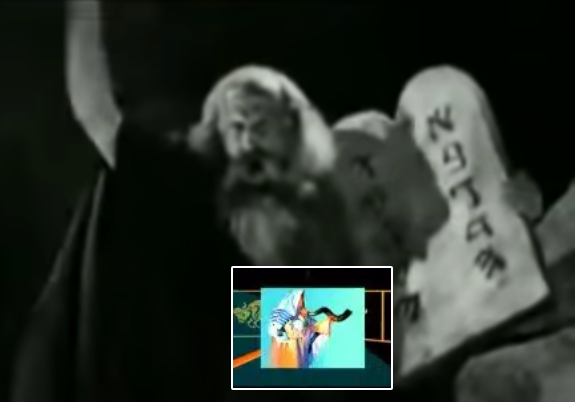
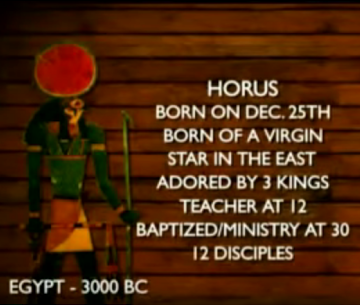
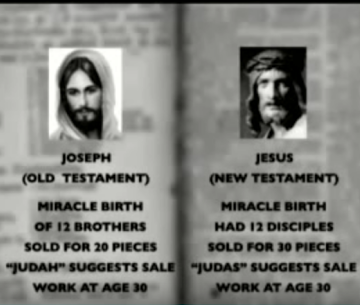
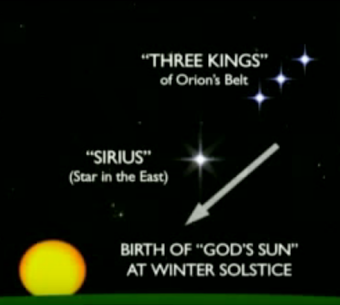
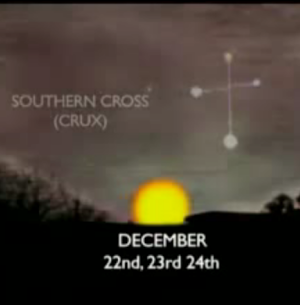
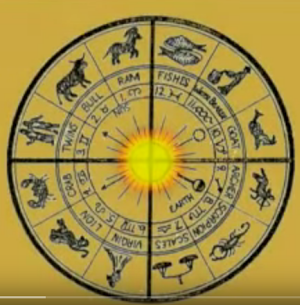
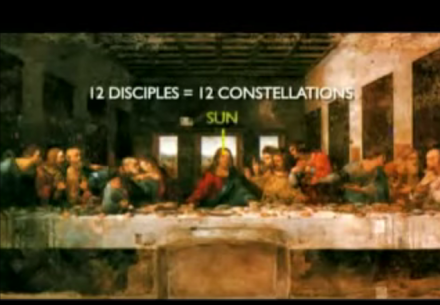

It’s simple to understand why the sun has been the most worshiped object of all time for its myriad of life giving necessity.
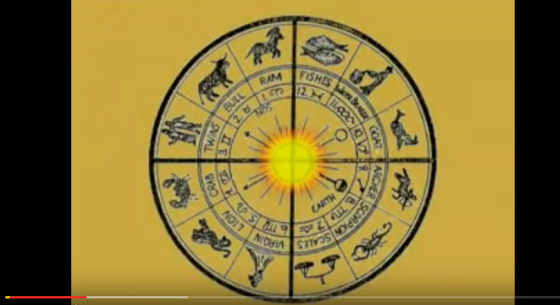
This is the cross of the zodiac. It represents the sun as it passes through the 12 constellations in the course of the 12 month year. It also reflects the four seasons, the solstices and equinoxes.
God’s sun, the light of the world and life giver traveled the world through anthropomorphized stages of the zodiac. For example, through the spring rains of Aquarius, the water bearer.
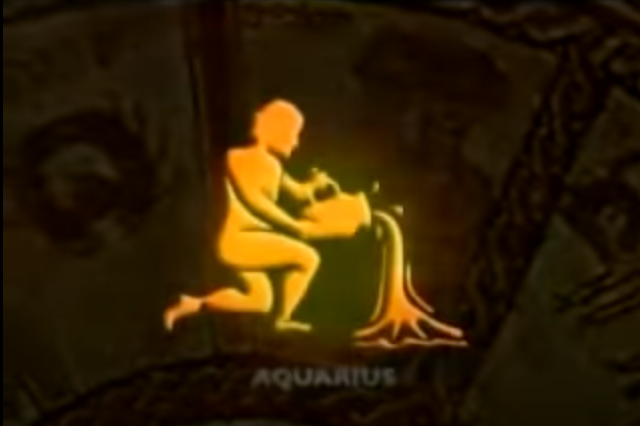
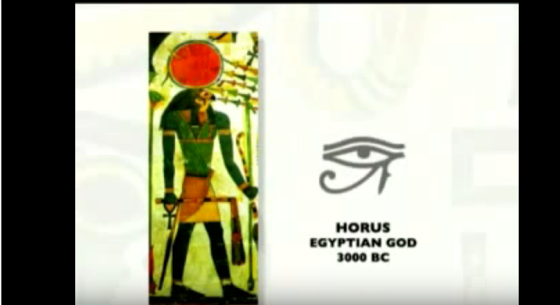
This is Horus, sun god of Egypt

Horus had an enemy called Set, the personification of darkness or night.

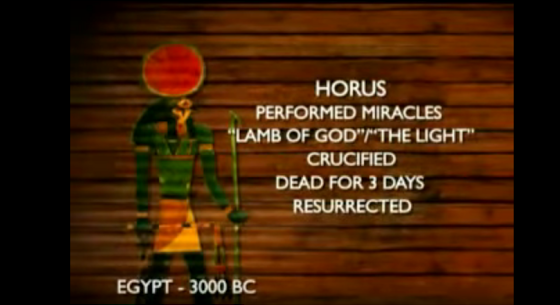
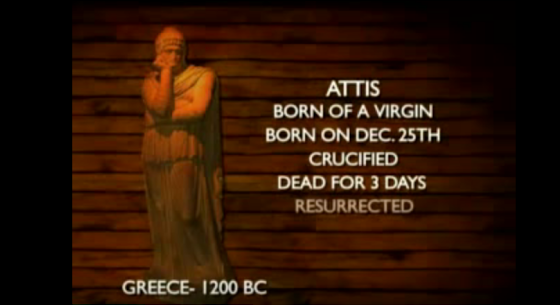
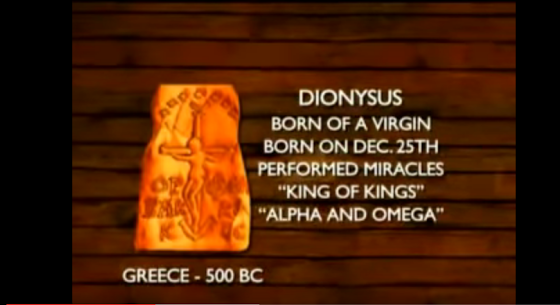
Dionysus was also resurrected.
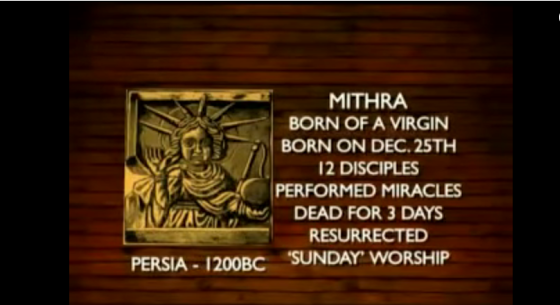


The birth sequence is completely astrological.
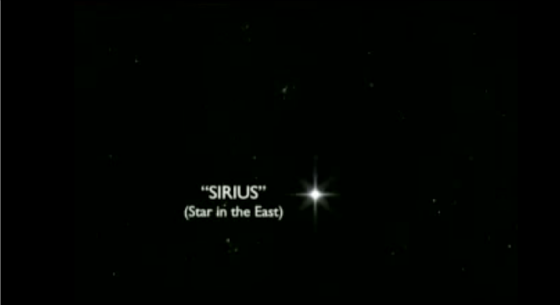
The star in the east is Sirius.
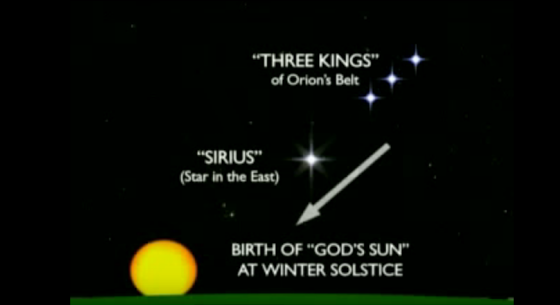
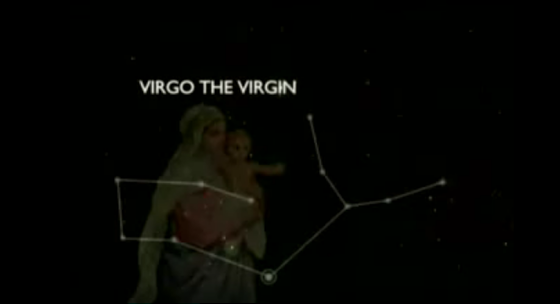
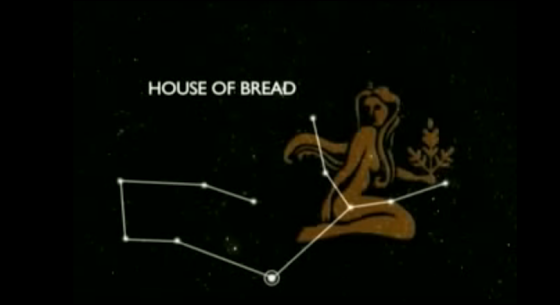
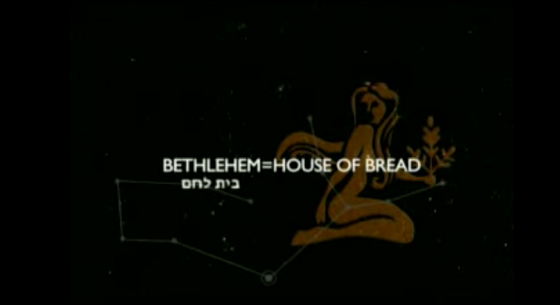

The sun is at its lowest in the northern hemisphere as the southern cross appears.
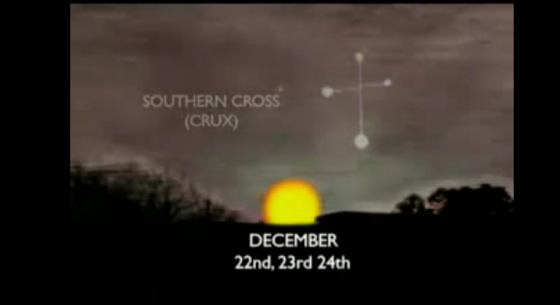
The sun appears not to move, suspended for three days.
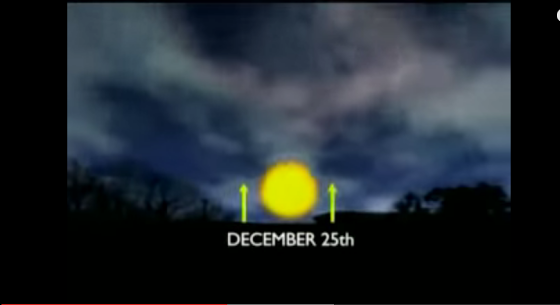
…before “arising in rebirth.”
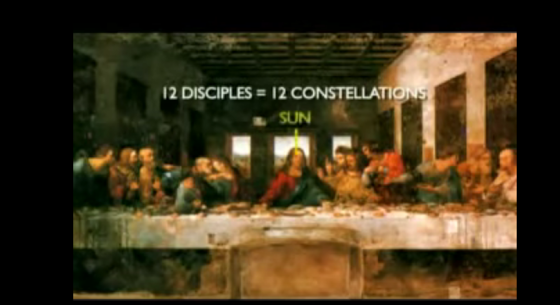
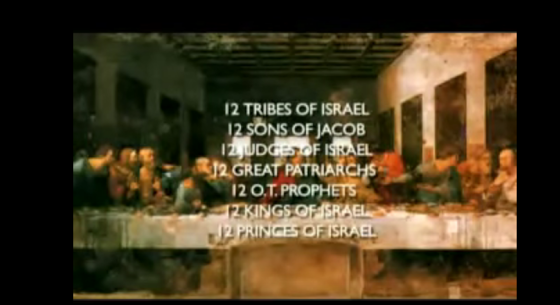
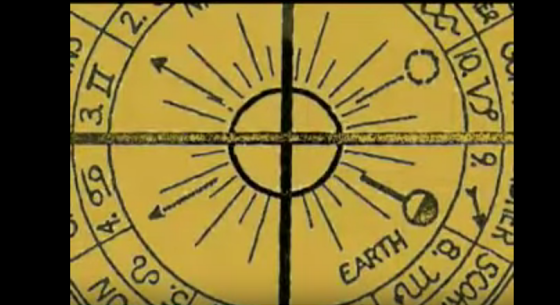
Coming back to the cross of the zodiac, it was not just an astrological chart..

It also contained a religious symbol which looked like this. This is a pagan symbol of the cross of the zodiac.
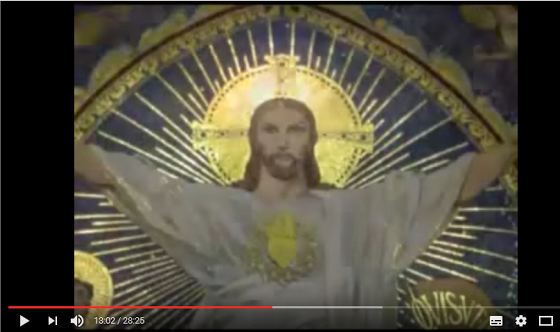
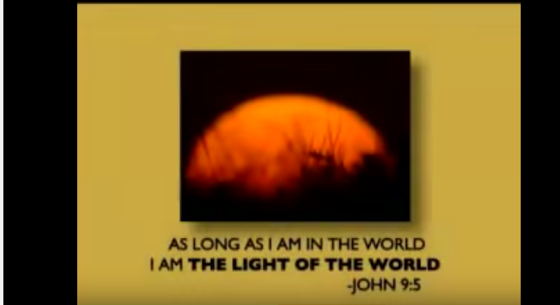
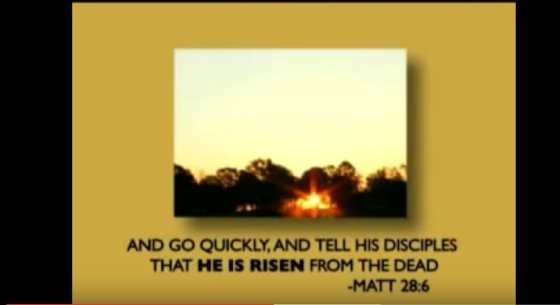

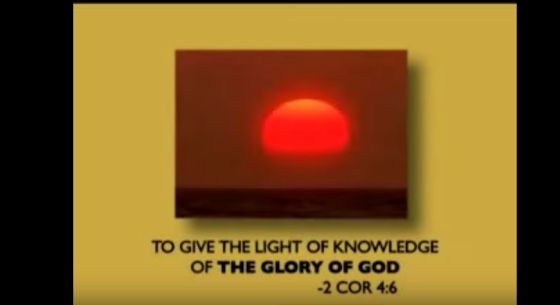
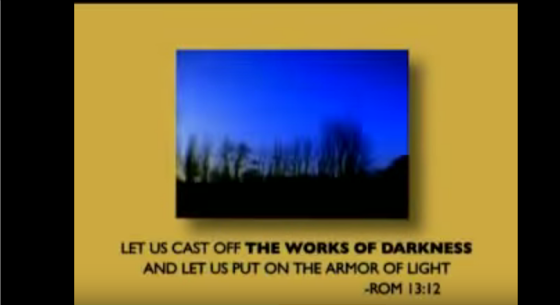
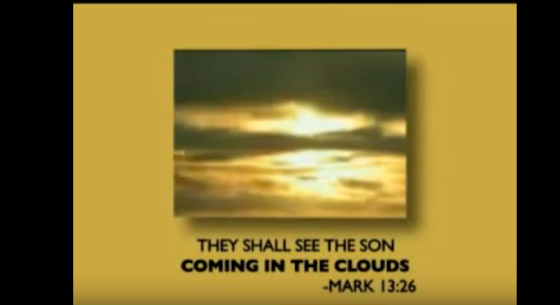
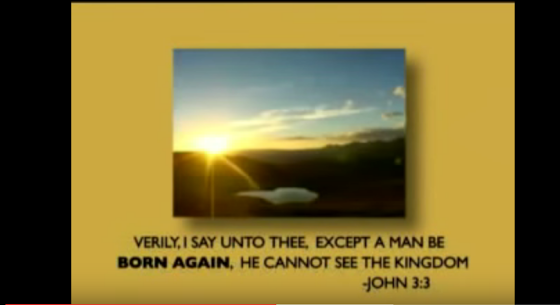


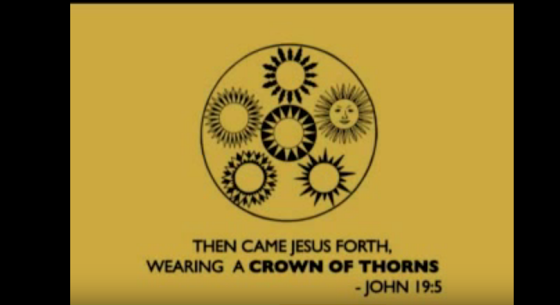
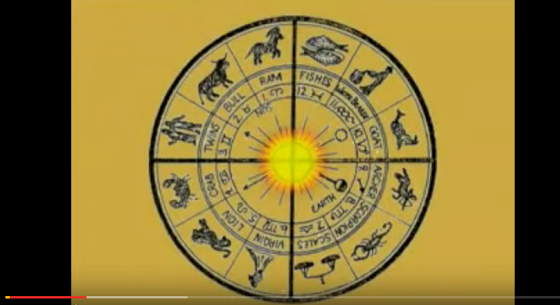
In the solar calendar, there is a grander time frame called “the age” – it refers to the “procession of equinoxes”, that is, the sequence of which sign of the zodiac that the equinox occurs within – each occurring within a zodiac sign’s “house” for a span of 2,150 years, after which it moves to occur within next zodiac sign’s “house.”
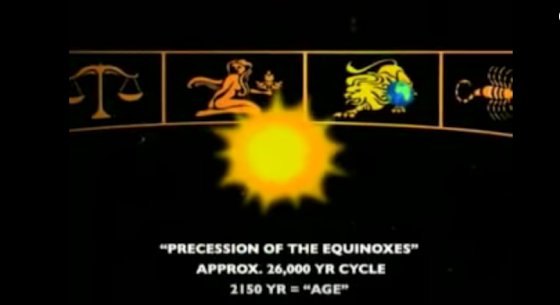
It is this cycle that the bible is cryptically referring to when it speaks of “the age.”
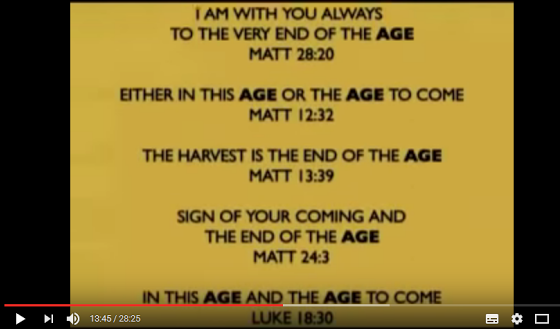
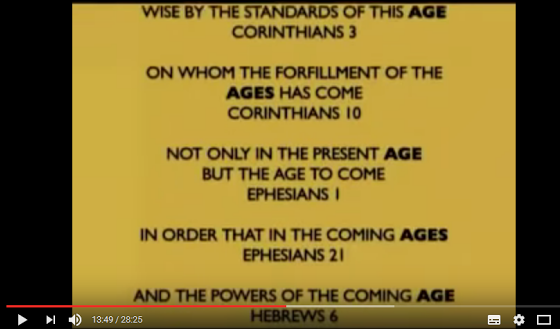
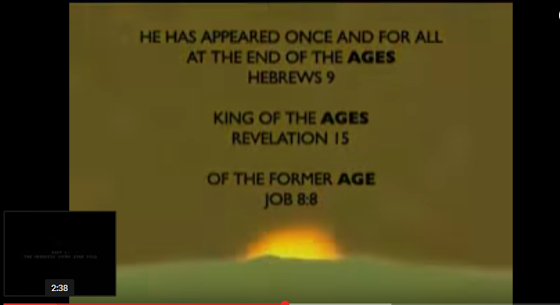
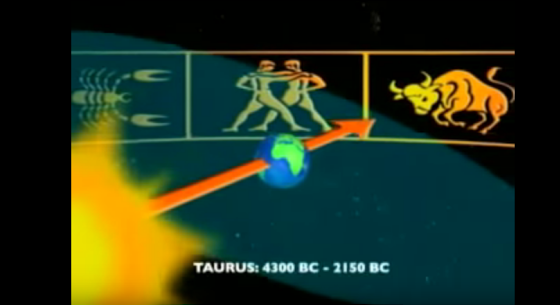
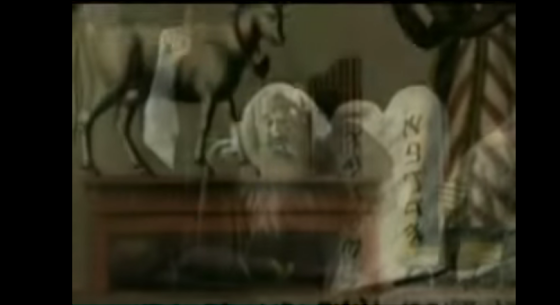
Moses was was very upset to find his people still worshiping the age of the bull.
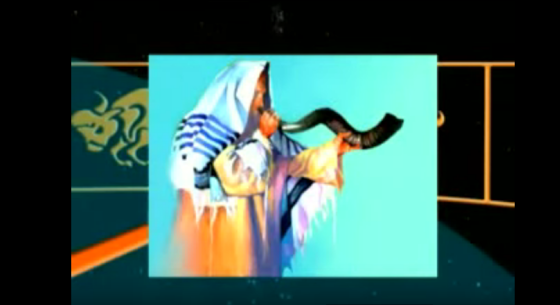
He hailed and represented the next age, of Aries, the ram.
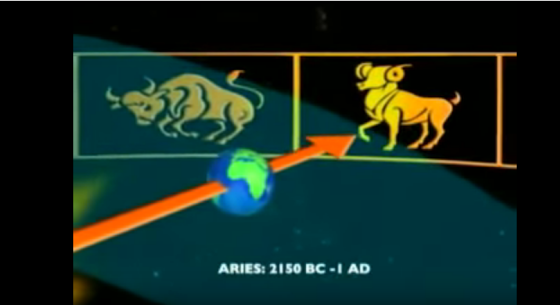

Jesus represents the next age, of Pisces, the fish.
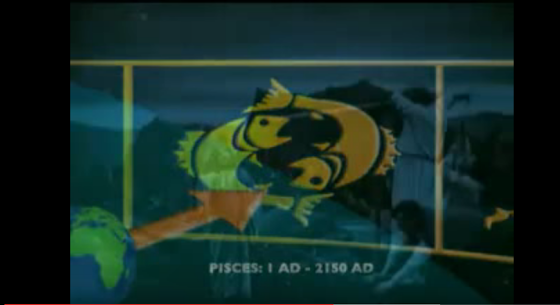
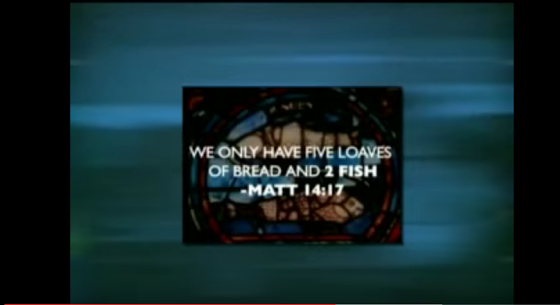
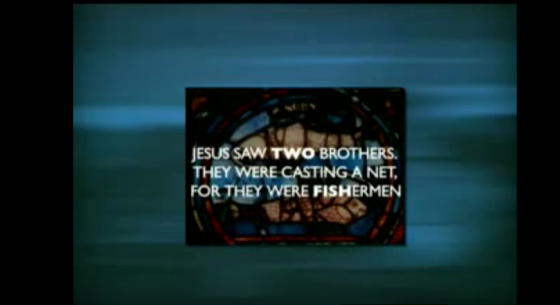

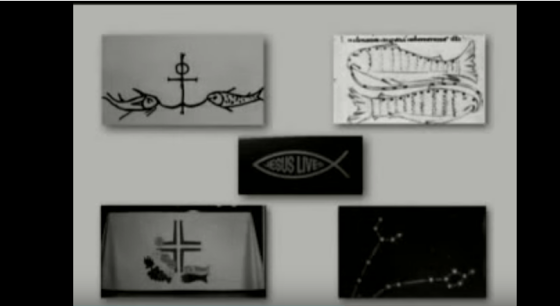
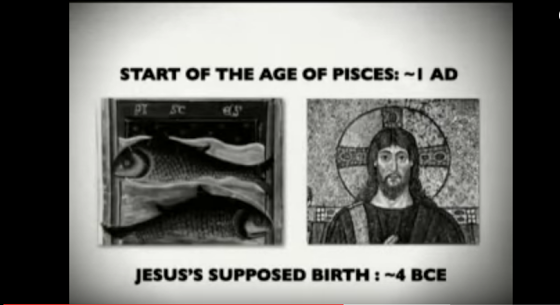

This scripture is by far one of the most revealing in its astrological reference.

The man bearing the pitcher of water is Aquarius. He represents the age after Pisces, as Aquarius follows Pisces in the procession of the equinoxes.
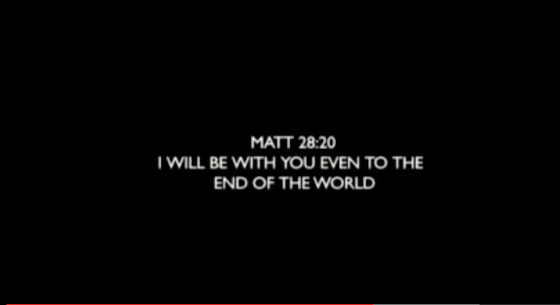
But that’s the King James translation.
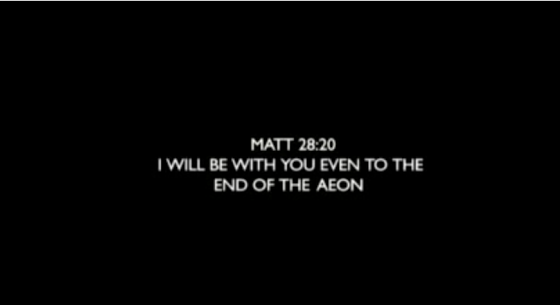
The actual word is “aeon,” which means “age.”
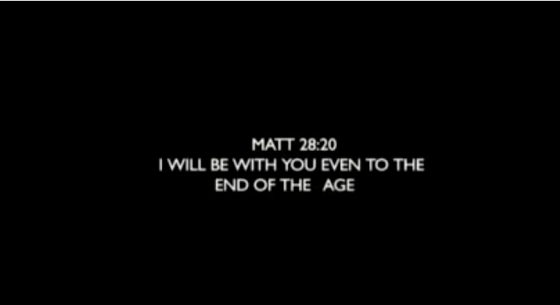

Tell that to the millions of Christians who believe that the end of the world is coming. That it [“the end of the world”] is in fact a misinterpreted astrological allegory [“the age”]. Furthermore, the literary and astrological hybrid that makes up the character of Jesus, is almost certainly a plagiarism of the Egyptian sun god, Horus.
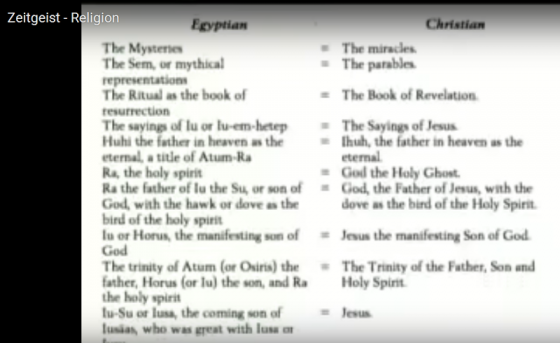
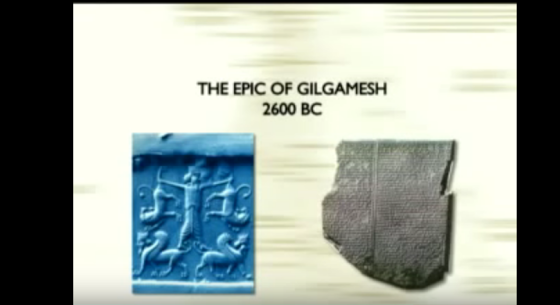
For a source of the flood story, one need look no further than Gilgamesh.
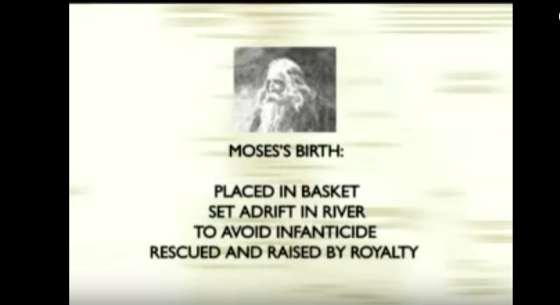
Moses
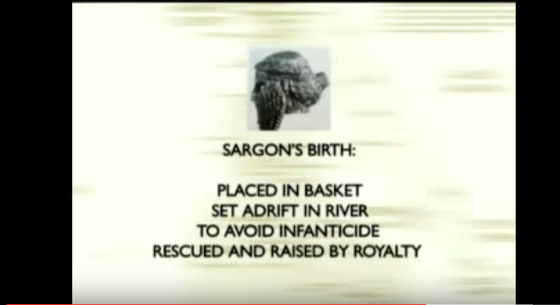
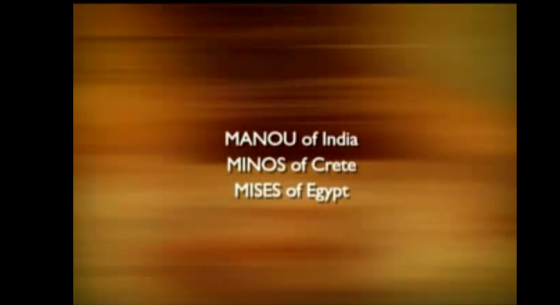
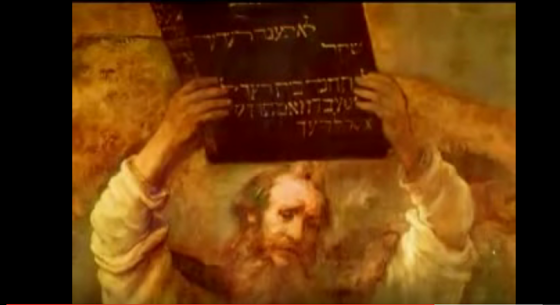
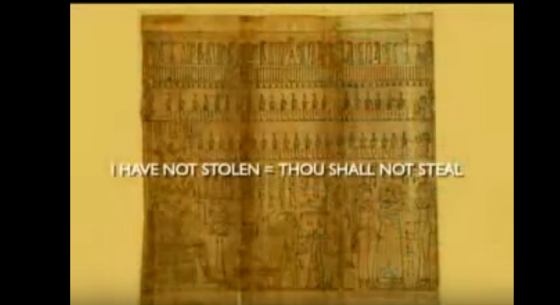
Ten Commandments derived from Egyptian Book of The Dead.

Fundamentalist Christians actually believe the world is 12,000 years old; and dinosaur fossils?
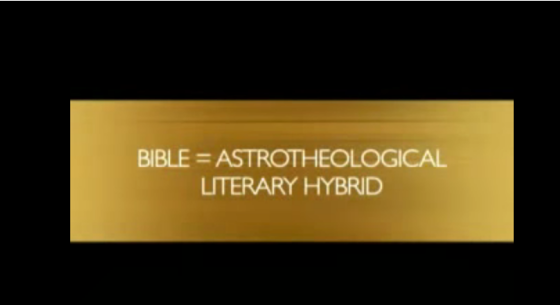
…just like nearly all religious myths before it.
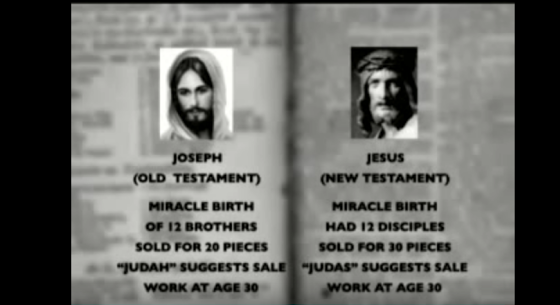
…and Christianity, in turn, borrowed derived myths from The Old Testament.
In fact, is there any evidence at all that a historical figure Jesus existed?

We don’t want to cause hurt feelings but we want to be academically correct in what we understand and know to be true – Christianity just is not based on truth – Russel Pine, a.k.a., Jordan Maxwell
Ok, good, he denounces Christianity.
and? …he adds..
Ibid. We find that Christianity was in fact nothing more than a Roman story developed politically.
Narrator:
The reality is that Jesus was the solar deity of the Gnostic Christian sect and like all other pagan gods, he was a mythical figure. It was the political establishment that sought to historicize the Jesus figure for social control.
It is well and good that Zeitgest denounces Christianity for its capacity to obscure the nefarious motives of the powerful, but it does not call attention to its obscurantism of the YKW’s motives.
It wants you to believe that Christianity was a motive of The Roman elite, beginning with Constantine, and not a motive of the Jews to bring down Rome and ultimately subject Europe under Noahide law.
The narrator continues to focus the blame on Christianity and Roman authority as conduit (as opposed to the Jewish will to overthrow Rome and any other potential adversaries by means of Christianity).
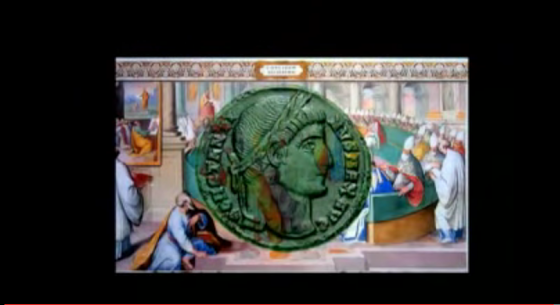
This angle also serves a divide (and thus aspire to conquer) Southern and Northern Europeans.
By 325 A.D. in Rome, Emperor Constantine convened the Council of Nicea – it was during this meeting that the politically motivated Christian doctrines were established and thus began a long history of Christian bloodshed and spiritual fraud; and for the next 1,600 years, the Vatican retained a political stranglehold on all of Europe. …leading to such joyous periods as the dark ages, along with enlightening events such as the crusades and the inquisition.
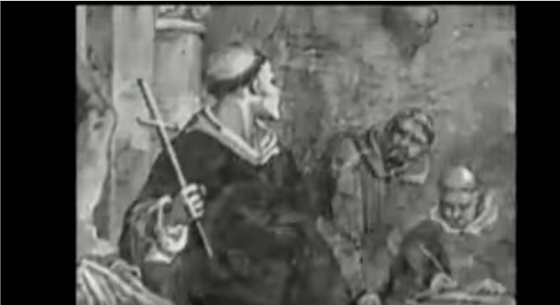
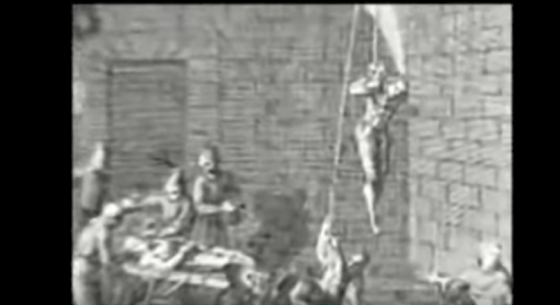

Christianity, along with all other theistic belief systems is the fraud of the age:
Note that he does not specify, “Abrahamic religion.”
….It serves to detach the species from the natural world and likewise each other.
No, on the contrary, it forces integration of the Gentiles among themselves.
It supports blind submission to authority. It reduces human responsibility to the effect that god controls everything and in turn awful crimes can be justified in the name of blind pursuit. And most importantly, it empowers those who know the truth, but use the myth to manipulate and control societies. The religious myth is the most powerful device ever created and serves as the psychological soil upon which other myths can flourish.
Judeo-Christianity lifted its stories from Egypt.
In the end a narrator says that Jesus was nothing more than a derivative Roman story used to justify political control, but of course that’s not deep enough…. it was really a Jewish story, used to justify their political control, ultimately.
He singles out Christianity for blame, but not Judaism.
“It was during meeting of Nicea thus began a long history of christian bloodshed and spiritual fraud….and for the next 1600 years the Vatican retained a political strangle hold on all of Europe …leading to such ‘joyous’ periods as the ‘the dark ages’ along with ‘enlightening’ events such as the crusades and the inquisition,” etc…
….from there he goes on to the logical fallacy of using generalization to obscure relative differences – “Christianity along with all other theistic belief systems” – “all religions” are bad because they try to separate you from nature and other people, and provide an obfuscation of the truth, an obfuscation that nefarious leaders, who know the truth, can use to control society.
“Region is the fraud of the age.”
…which religion? “It serves to detach the species from the natural world” …all religions do that?
…“likewise from each other”
– that bit is not true with regard to Christianity’s prescription [as GW observes], it seeks rather to blend the Gentiles together.
“It supports blind submission to authority”
– True.
…“it reduces human responsibility to the effect that god controls everything and in turn awful crimes can be justified in the name of divine pursuit.” ((( )))
..and in the name of the Kol Nidra.
“And Most importantly, it (((empowers those))) who know the truth but use the myth to manipulate and control societies. The religious myth is the most powerful device ever created and serves as the psychological soil upon which other myths can flourish.”
…all other myths, ranging from PC to objectivism – the foundation of liberalism.

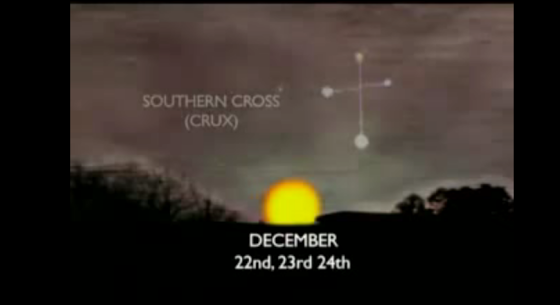
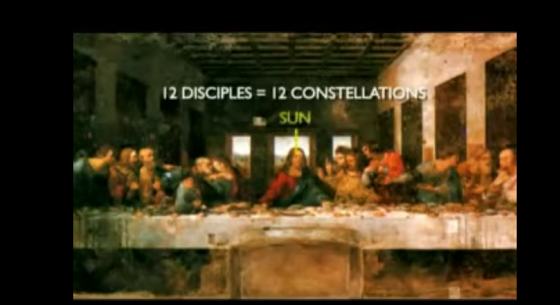
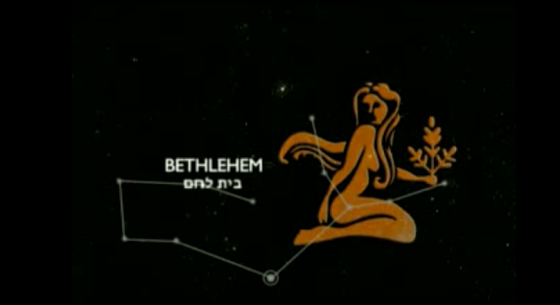
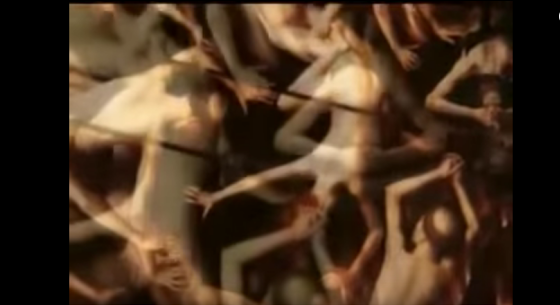
But he loves you
Zeitgest: All religions are nefarious but not Abrahamism distinctly and not Judaism especially as its organizing motive.Zeitgeist: All religions are myths used by the powerful to obscure and control the reality of which they are aware; maybe Christianity deserves to be singled out a bit, but not Abrahamic religions more broadly and not Judaism in particular for the key responsibility in motivational, re-organization of syncretic pagan sources.
Vice News on Judeo-supremacism, “Radical Young Israeli Settlers and Price Tag Attacks”:

A gentile and a Jew are not even supposed to eat at the same table.


This is how we are influenced by their evil culture.


It’s all according to him.
I don’t care anything else.
This is all.

You don’t care about laws, you don’t care about human rights, you don’t care about any of that?
– it’s all according to the Torah?

The Torah has also human rights.
The real human rights.
You know in the end…
After we build our big temple…

The ultimate goal is to be a light for all the goyim.
Goyim is the word that she uses. Rather than transcribing the word “goyim”, the film-makers translated her as saying “gentiles”, so that we might not hear ourselves being referred to as cattle – we can understand nevertheless, that we are being slated as an undifferentiated mass other, as GW says, “the Gentiles”, to be subject to the supremacism of Jews, of Noahide law – Abrahamic decree served also in its derivative religions, Christianity and Islam, and irrespective of any contention outside of its law..

Press to watch what they think of their bastard step child’s idea that it can be brought together with the chosen.

I’m Not White I’m Jewish
“World will be enriched by Israel’s wealth”
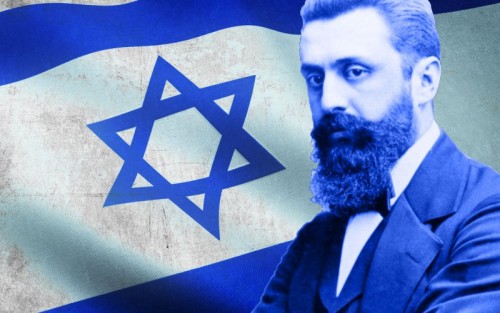
Daily Beast, “The Man Whose Dream Became Israel”, 1 Jan 2017:
Theodor Herzl, the founder of modern Zionism, is mostly famous for launching his movement in reaction to the anti-Semitism of the Alfred Dreyfus trial. As with all great historical tales, Israel’s foundation story conveys one essential truth—reactions to European Jew hatred did inspire Zionism. But this too-simplistic story risks eclipsing other nuanced truths, making Zionism seem too defensive and a critique of French liberalism rather than a more affirmative nationalism that also feared Austro-Hungary’s blood-and-soil anti-Semitic right.
But first, Herzl’s Zionist Aha Moment. It’s December 1894 in Paris. Theodor Herzl, a 34-year-old assimilated Austrian-Hungarian Jew, is covering the Dreyfus Affair. This lawyer, playwright, and journalist, with piercing eyes and a beautiful black beard, embodies the Enlightened rationalism and liberalism that freed Europe from the Middle Ages and Jews from their ghettoes. Alfred Dreyfus, a French officer, stands trial for treason. On December 22, 1894, when the court convicts Dreyfus—on trumped up charges, leading later to Emile Zola’s famous J’accuse—the crowd, inflamed by nationalism, doesn’t shout “Down with Dreyfus.” Instead, they yell—in Enlightened Paris—“Down with the Jews.”
Theodor Herzl has his Jewish awakening. Watching European nationalism cohere, appreciating the nation-state as the modern world’s defining political unit, knowing that, as he writes, “the Jews are one people,” Herzl realizes that until the Jews control their own country, Jew hatred will persist. The Jews must leave Europe and re-establish their ancestral homeland, the Land of Israel.
With this evolution from the Wandering Jew to the Settled Israeli, Herzl theorized, anti-Semitism would disappear, Jewish pride would reappear. Jews could be normal again—after centuries of national purgatory causing persecution. Herzl writes a pamphlet, Der Judenstat, the Jewish State, in 1896; organizes the first Zionist Congress in Basel in 1897; visits Palestine in 1898; and dies tragically in 1904. The man who insisted “If you will it, it is no dream,” was prophetic. Herzl wrote in 1897, “At Basel, I founded the Jewish State. If I said this out loud today, I would be answered by universal laughter. If not in 5 years, certainly in 50, everyone will know it.” Fifty-one years later, in 1948, Israel, the Jewish State, was established.
It’s a great story, mostly accurate, although not fully true. The idea of Jewish peoplehood and a homeland was thousands of years old. And pressure for a modern Jewish State had been building for decades before Herzl’s epiphany.
Herzl himself is more complicated. He endured anti-Semitism in Vienna and worried for years about “the Jewish Problem”—can that perennially persecuted people ever fit into Europe? He also wasn’t some illiterate, anti-anti-Semitic Jewish pagan fleeing anti-Semites to build a garrison state of Jews. He loved Judaism, calling Zionism “a return to Jewishness, even before it is a return to the Jewish land”—although it took him awhile to realize Palestine was the only option for his Jewish state. He understood that the Jews’ unique heritage mixing religion and peoplehood could yield a State filled with Jewish values without being a theocracy because “Jewish” is a national concept too. He wanted—as he titled his 1902 utopian novel—an Altneuland, an Old-New Land, being what Barack Obama would call someone “who had the foresight to see the future of the Jewish people had to be reconnected to their past.” And, as a good liberal democrat, Herzl captured the universal possibilities pride in your particular heritage can bring. “We shall live at last as free people on our own soil, and in our own homes peacefully die,” he concluded in Der Judenstat. “The world will be liberated by our freedom, enriched by our wealth, magnified by our greatness.”
Historically, Herzl wasn’t just reacting to liberal France’s illiberalism but to what we might today be tempted to call the “alt-Right” that emerged as the Austro-Hungarian Empire collapsed. In Herzl’s home city of Vienna, anti-Semitic, radically populist candidates emerged, with Karl Lueger of the Christian Social Party denouncing “corrupt liberalism” and Jewish power. These anti-Semites were “deterministic” racists, the political scientist Shlomo Avineri explains, fearing Jewish blood not attitudes. And they feared Jews’ perceived “success” not “weakness.”
Israel’s current status leads friends to overlook one of Herzl’s failures and foes to exaggerate another one. Given how central the Jewish national project is to Jews today, and given how the Holocaust justified Herzl’s fears, it’s easy to minimize just how marginal, even ridiculous, Herzl seemed to be. There he was, visiting European leaders, negotiating with the Ottoman Sultan, purporting to represent European Jews, most of whom wanted to stay home—or move to rich and free America not godforsaken Palestine.
And, given how the last century has played out, and given how wrong Herzl was about a Jewish state eliminating Jew hatred, many distort his views regarding the Arabs of Palestine. Palestinian critics caricature Herzl as a Cecil Rhodes-like Western imperialist, solving the Jewish problem on the Arabs’ backs. Israeli fans caricature him as a male, Jewish, Mother Teresa, sure that a Jewish state will redeem the Arabs too. The truth, of course, lies somewhere in the nuanced middle. Herzl did imagine Jews and Arabs living happily ever after in “our common Fatherland.” But Herzl also underestimated how deep Arab ties were to the land—and their resistance to the Jews’ return.
Ultimately, we must abandon the Hollywood black or white version of Theodor Herzl, appreciating this complex character tackling a confounding problem in complicated times. He shared liberals’ idealistic faith in nationalism—even as he saw its ugly reactionary side. He echoed some Europeans’ condescending attitudes toward others. And he wasn’t some superhero saving the Jews, the Arabs, or the world.
However, like all great leaders, Theodor Hezl had an appealing vision suited to a particular moment that by (eventually) mobilizing millions shaped history. And like all great democratic leaders, he wasn’t just defending his people—or targeting enemies. In his moving Chanukkah story “The Menorah,” about a “man who deep in his soul felt the need to be a Jew,” Herzl imagined a once-assimilated Jew lighting the traditional Jewish candelabra. Watching the lights flicker, he and his family conclude, “The darkness must retreat.” Herzl adds: “The young and the poor are the first to see the light; then the others join in, all those who love justice, truth, liberty, progress, humanity and beauty.”
Comments are closed.
The Jewish concept of “healing” or “fixing the world”, implies, for them a a quasi Israeli nationalism which is really Israeli world imperialism, its home base to promulgate “fixing” or :”healing”, by which they mean disabusing the non Jews of their “idolatry”, i.e., obedience to any other god, cause or people other than the Jewish god. This would include fighting against the nationalism and ethnonationalism of other peoples as “idolatry”, therefore, “evil.”
What Is Tikkun Olam and Why Does It Matter?
An Overview from Antiquity to Modern Times
Elliot N. Dorff
Jews today speak of tikkun olam as a central Jewish precept; concern for literally “fixing the world” by making it a better place, through activities we often call “social action,” is certainly at the heart of a contemporary Jewish perspective on life. That meaning of the term tikkun olam, however, is itself very new in Jewish history.
The first occurrences of the phrase tikkun olam in the Jewish tradition appear in the Mishnah and Tosefta (both edited c. 200 C.E.), which state that the rabbis instituted a number of changes in Jewish law mi-p’nei tikkun ha-olam, “for the sake of tikkun olam.”1 In these earliest usages, the term probably means—as the Alcalay and Even-Shoshan dictionaries suggest as their first definition—guarding the established order in the physical or social world (with derivative nouns t’kinah, meaning “standardization,” and t’kinut, meaning “normalcy, regularity, orderliness, propriety”).2 In the twelfth century, Maimonides expands on this considerably, claiming that the rabbis created all of their rulings, customs, and decrees—that is, the entire rabbinic legal tradition—in order “to strengthen the religion and order [i.e., fix] the world.”3 In this earliest meaning of the term, then, the rabbis sought to repair the legal and social worlds by making Jewish law apply fairly and effectively in their contemporary circumstances, thus giving the world proper proportion and balance.
The next time the phrase is used, now with a different meaning, occurs in the second paragraph of the Aleinu prayer, which was first used in Jewish liturgy in the fourteenth century. That paragraph is much less often sung than the first and therefore it is much less well known, even though it is the core of the prayer’s meaning. The first paragraph says that we Jews have a duty to praise God for making us a distinct nation and for creating and ruling the world. The second paragraph then states:
Therefore we hope in You, Adonai our God, soon to see the glory of Your might, sweeping idolatry away so that false gods will be utterly destroyed, to fix [perfect] the world by [to be] the Kingdom of the Almighty (l’takkein olam b’malkhut shaddai) so that all human beings will pray [call out] in Your name, bringing all the wicked of the earth back to You, repentant. Then all who dwell on earth will acknowledge and know that to You every knee must bend and every tongue pledge loyalty. Before You, Adonai, our God, they will bow and prostrate themselves, and they will give honor to Your name. All of them will accept the yoke of Your sovereignty, and You will rule over them soon and forever; for sovereignty is Yours, and You will rule with honor always and forever, as it is written in Your Torah, “The Eternal will rule forever and ever” (Exodus 15:18). Furthermore, it is said [in the Prophets], “And the Eternal will be acknowledged sovereign over the whole earth, on that day the Eternal will be one and God’s name one” (Zechariah 14:9]).4